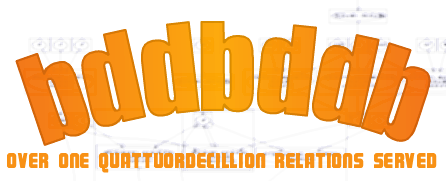
bddbddb stands for BDD-Based Deductive DataBase. It is an implementation of Datalog, a declarative programming language similar to Prolog for talking about relations. What makes bddbddb unique is that it represents the relations using binary decision diagrams (BDDs). BDDs are a data structure that can efficiently represent large relations and provide efficient set operations. This allows bddbddb to efficient represent and operate on extremely large relations - relations that are too large to represent explicitly.
We use bddbddb primarily as a tool for easily and efficiently specifying program analyses. We represent the entire program as database relations. Developing a program analysis becomes as simple as writing the specification for the analysis in a declarative style and then feeding that specification to bddbddb, which automatically transforms your specification into efficient BDD operations.
Using bddbddb for program analysis has a number of advantages:
bddbddb was written by John Whaley, a Ph.D. student working in the Stanford SUIF Compiler group, as part of his research with Professor Monica Lam. He releases this software as open source with the hope that it will take program analysis to a new level by accelerating the development of new advanced analyses, enabling non-specialists to easily develop their own program analyses, and facilitating collaboration between programming language researchers.